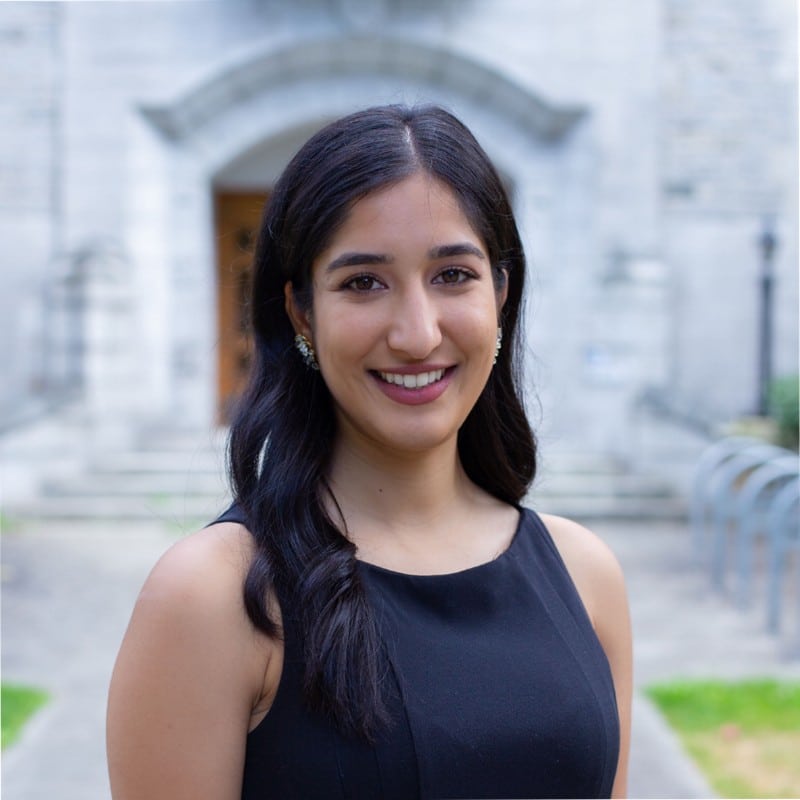Sami Sekhon is a values-based leader who is passionate about transforming and collaborating with business, government, and non-profit sectors to create impactful solutions that improve the wellbeing of communities. For Sami, values-based leadership means building teams and solving problems with empathy, inclusion, and psychological safety. She understands that these three elements allow people to succeed in the workplace since they can bring their honest perspectives to the table without judgment and be motivated to push the limits without fear of failure. She is also an AHF Fellowship Circle graduate and an AHF Amplifier (AHF’s campus ambassador program).
Sami is currently in the second year of her MBA at the Sauder School of Business where she is specializing in Strategy, Consulting and Technology Leadership and on the MBA Student Executive Team as Vice President, Internal. As VP Internal, Sami seeks to create a culture within the MBA program that reminds her classmates to make the most of our short return to academia and that we should welcome each new experience with curiosity and openness. Sami has worked closely with the MBA Women in Business Club to create events that seek to amplify the voices of Black, Indigenous and women of colour in the business sector and help educate classmates on how they can be proactive allies during group work or even in their internships. Sami is passionate about uplifting Black, Indigenous and women of colour to find their personal power and self-fulfillment through their career, family and sport.
Self-Empowerment through Community
Sami has been on a path of self-reflection having unpacked her values, intrinsic motivations, and most importantly the barriers that have prevented her from reaching her true potential. In 2020 Sami wrote a blog in which she advocated for immigrant women to know their value, live their potential and be empowered to dismantle the barriers.
“When we are starting out our careers, children of immigrants may hear from their families to be cautious and to find a stable work environment,” explains Sami. This approach can limit your appetite for exploration, growth and possibility seeking.
“After much self-reflection about my career choices, and also the systemic barriers faced by women of colour, I decided to pursue my MBA,” recalls Sami. “I remember seeking safe circles where I could talk about these things but was unsure if my colleagues, friends or classmates also carried this internal dialogue.”<
Sami saw the Accelerate Her Future Fellowship Circle advertised on her University’s career board. “The minute I started reading the program description, I remembered thinking to myself, ‘This is
exactly what I need.”
“I was seeking a safe space where I could engage in real talk and have real conversations about my unique experiences as a woman of colour,” recalls Sami. During the program, Sami asked peers and mentors a lot of questions about their career progression and the lessons they’ve learned.
According to Sami, these conversations can help you see your own potential, worth, talents and strengths. “Through the connections I made, I felt empowered to reach my potential personally and professionally,” explains Sami. “We need a safe environment and community where we can self-reflect, share stories and have them validated by women who reflect our lived experience,”
Sami has continued to grow her community through her MBA program, internships, and LinkedIn. “Surrounding yourself with the right people and community is so important. Be open, start with one conversation, and one question, then see where that goes.”
Improving Healthcare for Canadians
When Sami began her undergraduate degree in Kinesiology, she wasn’t sure about her career path. After finishing her degree, she worked in a number of industries including insurance and healthcare.
“During my time in the insurance industry, I learned that I loved to help people and during my time in healthcare I observed several gaps in the Canadian system,” reflects Sami. “I didn’t want to be in a client-facing role, and began to consider how I might work behind the scenes to improve healthcare for Canadians.”
Growing up in an immigrant community, chronic disease was perceived as the norm for our parents and grandparents – diabetes, heart disease, alcoholism, and depression to name a few. It seemed like these diagnoses were inevitable and that all members of the community would have one or a combination. It wasn’t until I started my Kinesiology degree that I began to learn about risk factors and prevention. I realized that something could be done to stop the rampant spread of chronic disease through immigrant communities, however our health systems lacked the ability to provide equitable and accessible education and outreach. With Canada being heavily populated by immigrants, it was apparent that the existing colonial structures would be insufficient to provide adequate care to these demographics and so I wondered if I could find a career where I could help fix this.
As Sami learned more about the inner workings and systems of the healthcare industry, she realized that although healthcare and the organization in which she worked was a public-sector entity, it was ultimately a business. “This was a key factor that motivated me to pursue my MBA at Sauder.”
“I was highly motivated than ever to do my part to help the healthcare system become more equitable and efficient,” recalls Sami. “I needed the business knowledge to support this vision.”
Sami completed her MBA internship at one of the big 4 professional services firms, where she applied her background in healthcare and business knowledge, working on public sector projects that will have a positive impact on communities.
Getting the Most Out of Your Internships
After a successful Internship experience, Sami offers three pieces of advice for getting the most out of your internships.
- Find your allies – It can be scary entering a new company and a lot of pressure to build a good reputation in a short period of time. If you are able to find 1 or 2 people at the company that can operate as your support circle it really helps make the internship more enjoyable.
- Be open and set learning goals – During my first few weeks of your internship make a point of getting to know your teammates. Sami made a point of sharing her past experiences and her biggest insecurities with her team. “I was very upfront about not having any consulting experience and that I would need guidance from the team on how to navigate my transition into the role.” Sami also communicated her goals for her internship and validated with her manager if the goals were realistic given the scope of her internship.
- Be yourself – Being yourself is not always easy as women of colour, as some environments make it hard. “I knew that I wanted to bring my authentic self to my role because doing so also helped me gauge whether the organization and industry were right for me, because that’s what I need to feel fulfillment in my career.” Sami led meetings with humour, gave space for everyone to be heard, and shared her unique perspectives. Doing so allowed her to build a strong relationship with her team and the client to which she was assigned.
Be Empowered to Drive Change
Sami has a lot of hope for the future of Black, Indigenous and women of colour in leadership.
“While our advancement has been slow in public and private sectors, connections are being made, conversations are being led and slowly our voices are starting to get louder and louder,” claims Sami.
Yet, Sami cautions that we can’t solely rely on organizations to make changes on their own. “We must empower ourselves to speak up, promote accountability, and bring about the changes that are very much needed.” As women, we must be active allies to one another across cultures and communities.
For Sami, Accelerate Her Future has been at the epicentre of this change as it is creating the conditions and community with, by and for Black, Indigenous and women of colour to use their voices and stand in solidarity and action towards systemic change.



